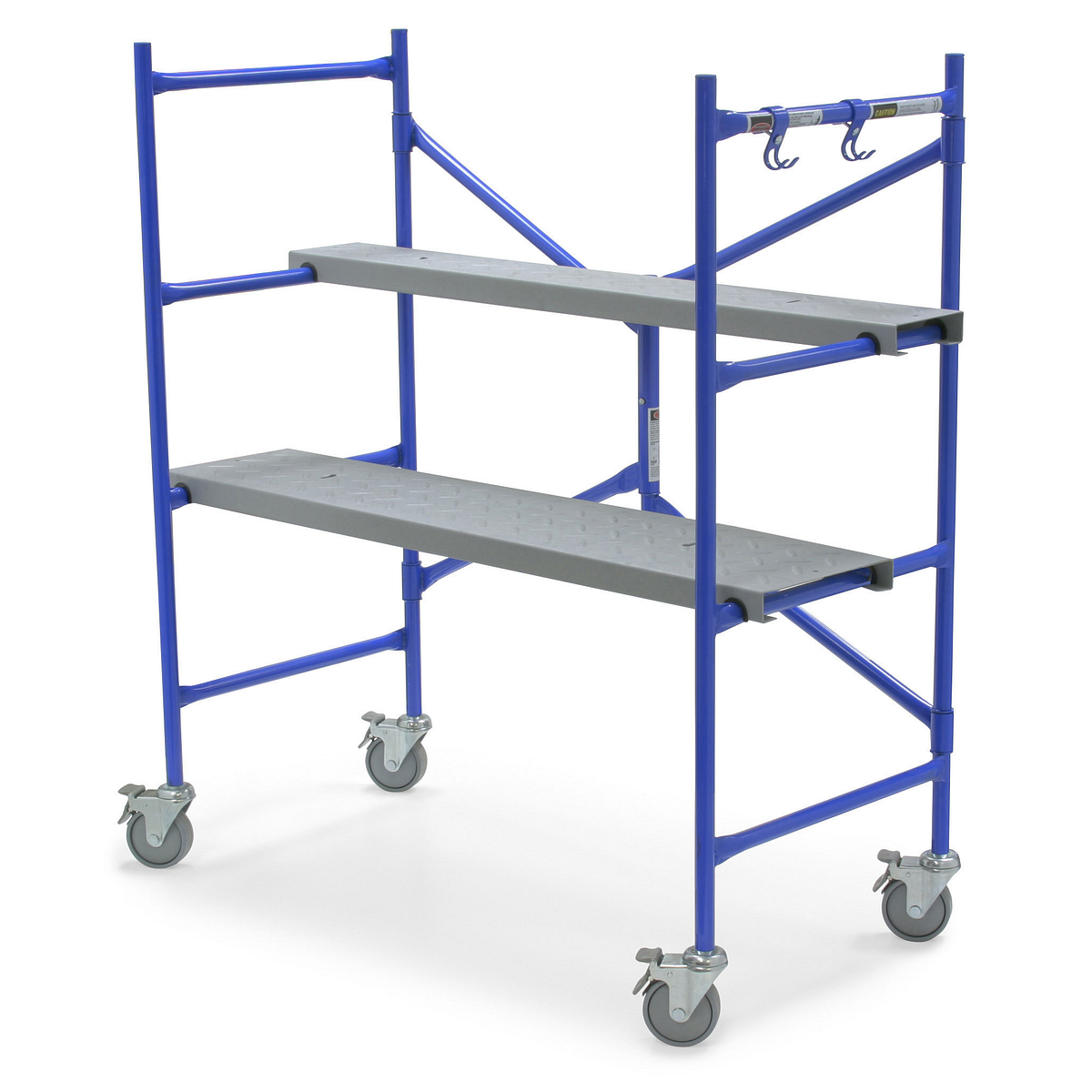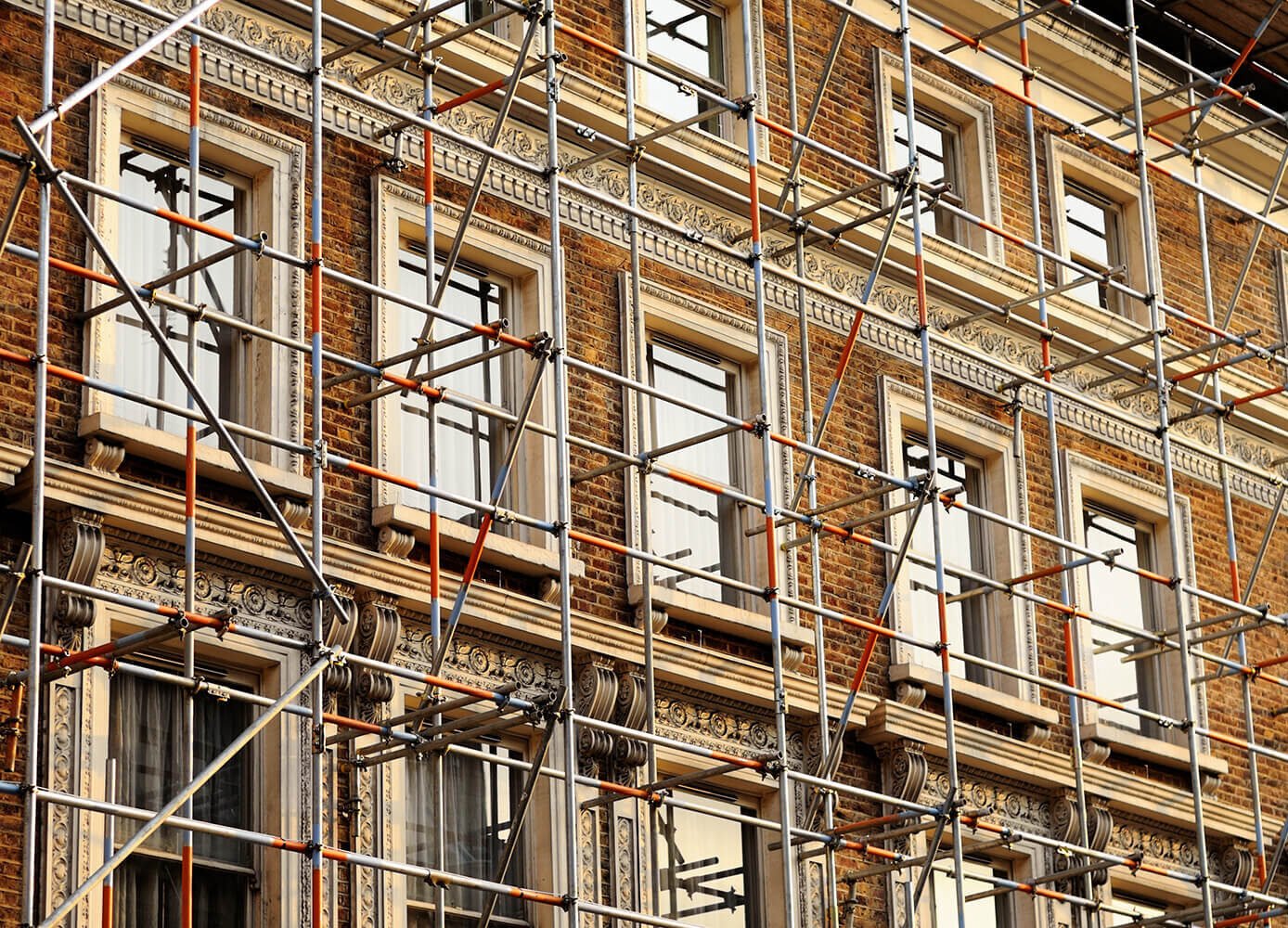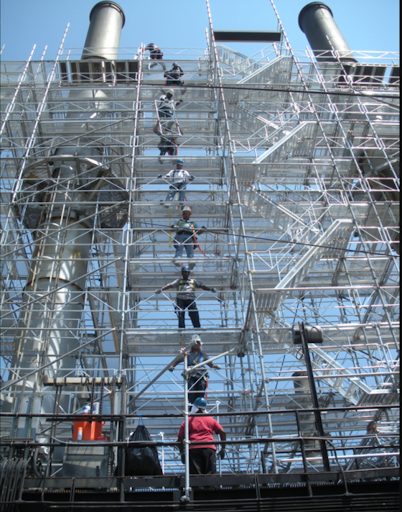Professional Scaffolder Surrey: Your Trusted Partner for Safe Installations
Professional Scaffolder Surrey: Your Trusted Partner for Safe Installations
Blog Article
Discovering the Numerous Kinds Of Scaffolding Made Use Of in Building And Construction Jobs
The building market counts greatly on different types of scaffolding to satisfy particular project demands, each offering distinctive benefits and applications. Typical structure scaffolding supplies a tough structure for basic tasks, while put on hold scaffolding is important for work on skyscraper structures.

Standard Structure Scaffolding
Conventional frame scaffolding is among the most commonly used methods in the building and construction sector because of its effectiveness and adaptability. This system includes vertical and horizontal frameworks that are assembled to develop a stable system for workers and materials. The main parts include vertical blog posts, straight ledgers, and angled dental braces, which with each other provide a solid framework that can support considerable tons.
One of the crucial benefits of standard framework scaffolding is its adaptability to various building and construction tasks, ranging from domestic structures to huge industrial frameworks. The modular style enables easy assembly and disassembly, making it reliable for both long-term and short-term jobs. Furthermore, the system can be customized in height and size, fitting different structure layouts and site conditions.
Security is critical in scaffolding applications, and standard frame systems are geared up with guardrails and toe boards to stop falls and make sure employee defense. Furthermore, regular evaluations and adherence to safety and security laws are critical in maintaining the honesty of the scaffold. On the whole, conventional structure scaffolding remains a fundamental choice in the building and construction market, giving a dependable platform for labor and enhancing overall project performance

Suspended Scaffolding
Put on hold scaffolding uses a special solution for building tasks that call for accessibility to elevated surfaces, especially in circumstances where traditional structure scaffolding may be unwise. This type of scaffolding is normally put on hold from the roof covering or upper degrees of a framework, using a system of pulleys, ropes, and platforms to produce a working area that can be adjusted to various heights.
Among the primary advantages of suspended scaffolding is its flexibility. It can be easily rearranged or reduced to accommodate changes in building and construction requirements, making it perfect for tasks such as window installment, façade work, and upkeep on skyscrapers. Additionally, the minimal footprint of suspended scaffolding permits much better use ground room in metropolitan environments, where space is usually minimal.
Safety is a vital consideration in using put on hold scaffolding. Appropriate rigging and securing systems have to be utilized to ensure stability and avoid crashes. Operators has to likewise be learnt the secure use of this tools. On the whole, suspended scaffolding offers a effective and efficient remedy for accessing hard-to-reach areas in numerous construction circumstances, improving both performance and security on website.
System Scaffolding
System scaffolding, commonly regarded as a contemporary option in the scaffolding market, consists of pre-engineered parts that can be swiftly assembled and adapted for numerous construction tasks. Scaffolding. This kind of scaffolding is defined by its modular design, which enables versatility and efficiency on task sites, accommodating architectural demands and various elevations
Typically made from high-strength steel or aluminum, system scaffolding offers enhanced longevity and security. The components consist of upright posts, straight ledgers, and angled dental braces, which adjoin firmly, making sure a robust framework. The design usually includes standardized fittings, streamlining assembly and disassembly processes, thereby decreasing labor time and prices.

Rolling Scaffolding
Moving scaffolding is a versatile option to traditional set scaffolding, created for wheelchair and simplicity of use on building sites. This kind of scaffolding consists of a platform sustained by frames with wheels, permitting workers to have a peek at this website quickly transfer it as needed. The wheelchair function dramatically improves performance, as it decreases downtime linked with constructing and disassembling dealt with scaffolding.
Usually constructed from lightweight products such as light weight aluminum or steel, rolling scaffolding offers a sturdy yet portable solution for projects needing constant repositioning - Scaffolding. It is particularly beneficial in tasks such as painting, drywall installment, and electrical work, where access to different heights and places is needed
Safety and security is critical in rolling scaffolding style, with features such as securing wheels to protect against unintended movement when being used, and guardrails to safeguard workers from drops. Additionally, several models are adjustable in height, accommodating numerous task needs.
Cantilever Scaffolding

The layout of cantilever scaffolding commonly entails using arms or brackets secured to a building or framework, allowing the platform to extend outward safely. Safety is critical; therefore, these scaffolds must be crafted to hold up against ecological problems and different lots. Regular evaluation and upkeep are important to ensure structural honesty and worker security.
Cantilever scaffolding is preferred for its adaptability and effective usage of space, making it a popular selection in metropolitan settings where space constraints prevail. In addition, it assists in much easier access to high altitudes, eventually adding to the total efficiency of building tasks. Similar to all scaffolding kinds, proper training and adherence to safety criteria are essential for workers using cantilever scaffolding.
Final Thought
Conventional frame scaffolding offers security, while put on hold scaffolding provides flexibility for elevated tasks. System scaffolding helps with quick assembly, and rolling scaffolding enhances wheelchair for varying work settings.
Standard framework scaffolding offers a tough structure for basic tasks, while put on hold scaffolding is essential for work on high-rise frameworks.Rolling scaffolding is a flexible alternative to standard set scaffolding, made for flexibility and simplicity of use on building websites. As with all scaffolding advice kinds, appropriate training and adherence to security requirements are important for workers using cantilever check my source scaffolding.
Conventional framework scaffolding supplies stability, while suspended scaffolding offers versatility for elevated jobs. System scaffolding promotes fast setting up, and rolling scaffolding enhances movement for varying job settings.
Report this page